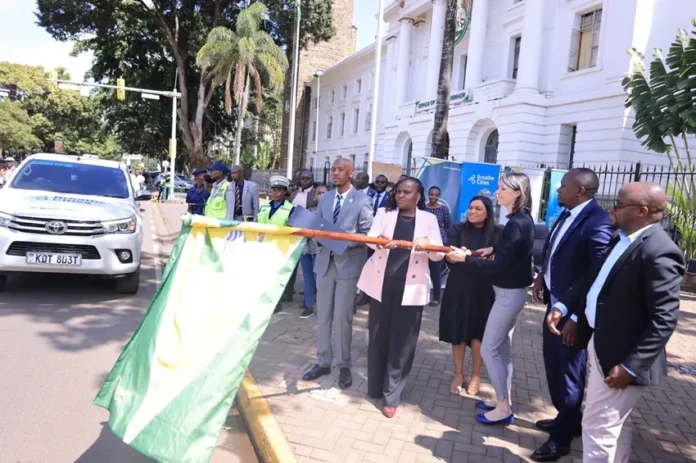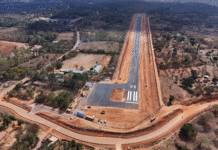
Nairobi has officially launched its first city-owned air quality monitoring network, marking a major milestone in its efforts to combat pollution and safeguard public health. The initiative will deploy 50 advanced sensors across the capital, offering real-time data to identify pollution hotspots and inform policy decisions.
Governor Johnson Sakaja hailed the development as a bold step toward a healthier city. “This milestone marks a turning point in our commitment to improving air quality management. We are taking practical steps to ensure that every Nairobi resident has access to cleaner, safer air,” he said in a press statement.
The launch, held in Nairobi on Wednesday, showcased the city’s determination to address what officials described as a “silent killer.” Maureen Njeri, Nairobi County Executive for Green Nairobi, emphasized that air pollution has long threatened vulnerable populations, particularly children and the elderly, while data gaps have hindered decisive action.
“These sensors are more than just gadgets. They are our eyes and ears in the atmosphere,” Njeri said. “They will guide our efforts with real data, helping us to expose pollution hotspots and develop targeted, life-saving policies.”
According to Nairobi County’s Chief Officer for Environment, Geoffrey Mosiria, the impacts of air pollution stretch beyond health. “It affects our economy, our environment, and our most vulnerable citizens. With this data, we can enforce regulations more effectively and direct interventions where they’re most needed.”
The city has already installed 39 of the 50 planned sensors, with initial testing completed. Supported by the Clean Air Fund, the sensors are part of the Breathe Cities Nairobi initiative, a global partnership with C40 Cities and Bloomberg Philanthropies, aiming to cut air pollution by 30% in participating cities by 2030, compared to 2019 levels.
Dr. Victor Indasi, Kenya Lead for Breathe Cities, called the rollout “an inspiring milestone,” noting it ushers in an era of evidence-based environmental action. “We are excited to see how this data will help shape cleaner air policies that truly make a difference,” he said.
The urgency is clear. A 2024 UNEP report attributed at least 268 deaths annually in Nairobi directly to air pollution, while around 10% of the city’s health budget is spent treating related illnesses. Njeri noted that in 2019 alone, air pollution was linked to roughly 2,500 premature deaths, with PM2.5 levels four times above World Health Organization recommendations.
In addition to monitoring air quality, Nairobi is addressing other pollution sources. Mosiria revealed that the city has shut down several illegal dumpsites, including the notorious one near English Press on Likoni Road, and is exploring waste-to-energy alternatives to reduce emissions from waste management.
“Cleaner air isn’t just about the environment, it’s about saving lives and improving quality of life,” Njeri said. “With this network, we can act smarter, faster, and more effectively for the future of our city.”
Written By Rodney Mbua


















